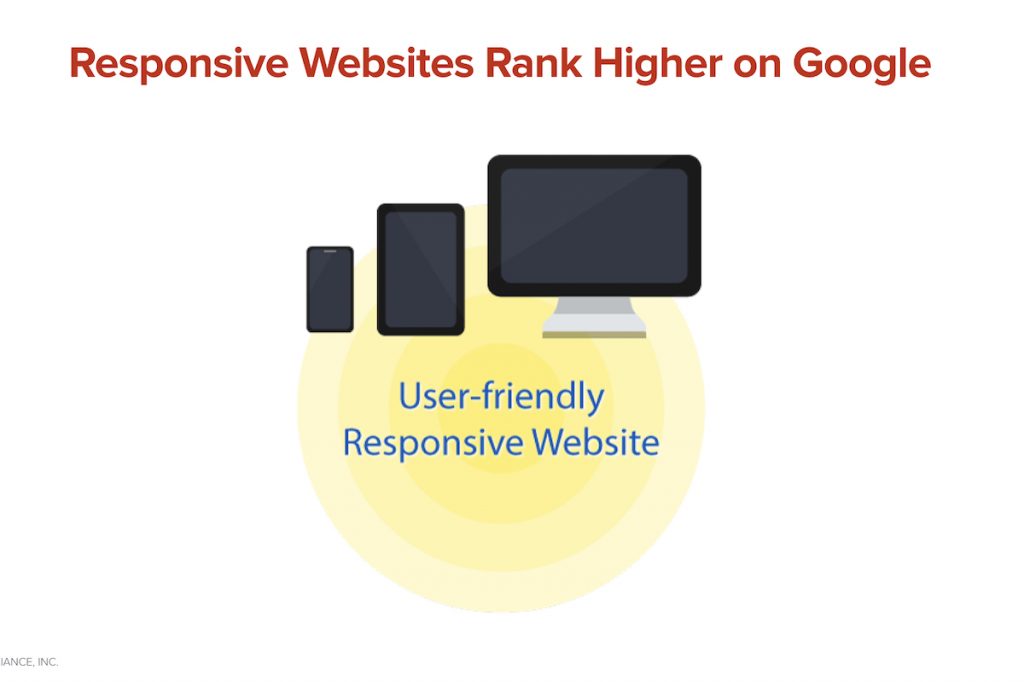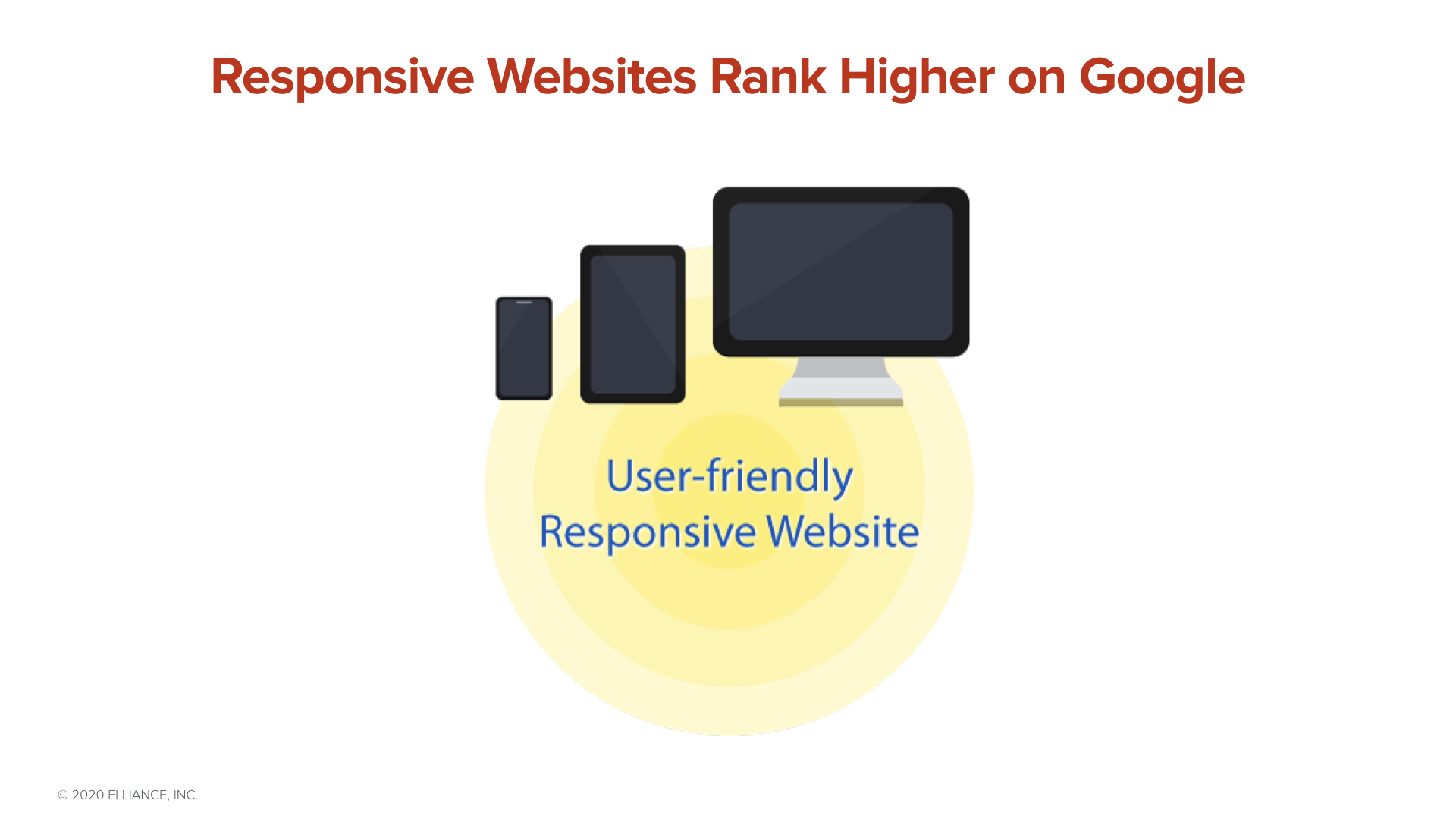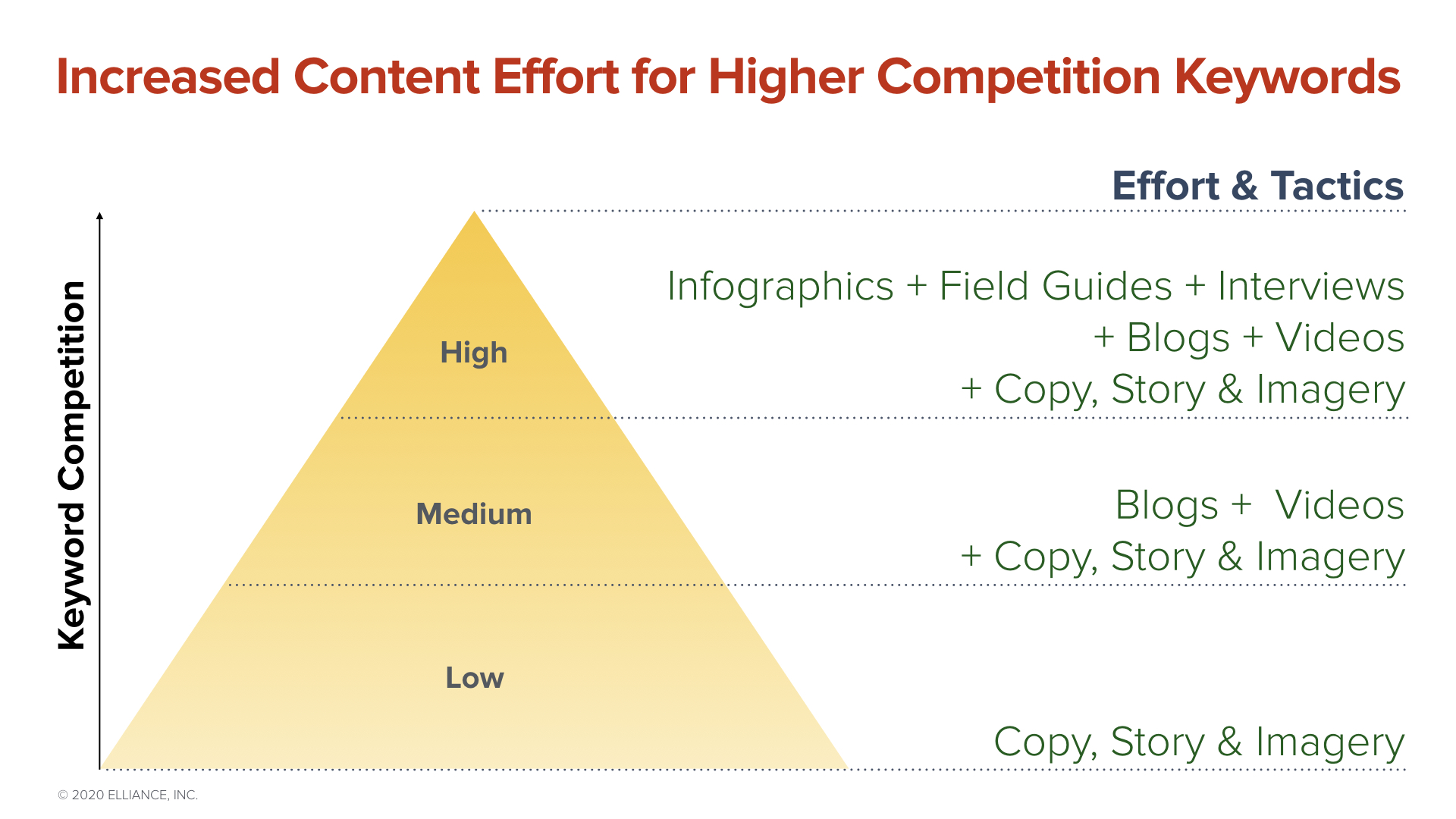| Mar 28, 2020
Grow College Enrollment with SEO for Higher Education

Colleges and universities can take the following SEO steps to grow their undergraduate, graduate, online and international enrollment.
1. Make your website responsive, secure and fast
Google rewards responsive websites – the ones that auto-adjust gracefully on smartphones, tablets or desktops. Google also ranks higher those websites that load fast and are running in secure mode.
2. Use .edu Instead of Using .com, .org and Other Domains
Since each college and university can be awarded only one (and occasionally two) .edu domains, search engines generally rank .edu websites higher than other domain extensions. Use .edu domains for websites, landing pages and microsites.
3. Create a Keyword Lexicon, and Claim Top Search Engine Rankings
Develop a Keyword Lexicon for your college. The lexicon is comprised of keywords and key phrases the college should claim. Categories in the lexicon include program keywords, brand positioning keywords, reputation keywords, decisioning keywords, and location keywords.
Prospective students use different clusters of keywords at each phase of the decision funnel. (e.g. they’ll use reputation keywords during the awareness phase, category keywords during the consideration phase and branded keywords during the preference/purchase phase). Write copy that responds to the issues that matter in each specific phase of the decision cycle.
4. Optimize all Assets for Search Engine Bots
Optimize copy, images, videos, pdf’s, tables, links, and meta-data on every college website page. This will ensure that Google serves up your copy, images, videos, maps and tabular data on a search results page. Since search engine bots also review and serve up assets on college social media channels, ensure that they are also optimized.
5. Multiply Social Signals
Social signals (a webpage’s shares, likes and social media visibility) impact organic rankings. Add them to every page of your college website.
6. Secure Top Rankings for Mission-Critical Pages
Secure top rankings for your signature academic programs by developing high-fidelity, sharable and optimized content to secure top rankings for each on Google. This helps colleges combat competitors and lead aggregators.
The more competitive a keyword, the more high-fidelity content you’ll have to create to secure page 1 rankings.
Claim thought leadership by re-packaging, optimizing and re-marketing new content assets based on your college’s natural wellspring of ideas, innovation, and intellectual capital.
7. Embrace Voice Search
We have entered a new era of “natural language”, “sentence based” and “question based” search with the advent of voice-activated search on mobile phones (like Google Assistant, Siri, Microsoft Cortana and Amazon Alexa) and gadgets like Amazon Echo, Google Home, Apple HomePod and others. 30 percent of searches are now voice driven. Get ready for the voice era by taking the following steps:
- Write colloquially. Since people won’t change their speaking habits for the computer, write new content using everyday vernacular.
- Write page summaries. Write short, persuasive, 29-word page summaries above the screen fold on long-form pages. These summaries act as pop-up snippets served up by voice searches on mobile devices and home gadgets; they also appear as answer boxes on desktop search results.
- Build social shares. Implemnt social share campaigns because the more shared the page is on Facebook, twitter, LinkedIn and other social channels, the more likely it will surface on voice search.
- Think globally. Act locally. Since more than 20% of searches are local, add phrases such as ‘near me’ into your copy, especially if a college is a local or regional brand.
- Rank high on desktop/mobile search. If a website is not ranked on desktop/mobile search, it is unlikely that it will be ranked on voice search. Therefore, focus on achieving top rankings on desktop/mobile search for your college website.
8. Monitor and Protect Keyword Rankings
Measure keyword rankings to ensure your college ranks on Google and sustain your rankings. Watch your college competitors for signs of encroachment, and counter their moves on an as-needed basis.
Remember that leads generated from high-fidelity content out-convert paid advertising leads by three-folds (which, again, out-convert purchased names by three-folds). The best prospects prefer to “discover” the college of their choice through word-of-mouth on social media and via “accidental finds” on Google page one.
If you are seeking higher education marketing agencies for your college or university, view our SEO capabilities and consider partnering with us.



